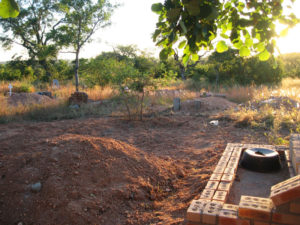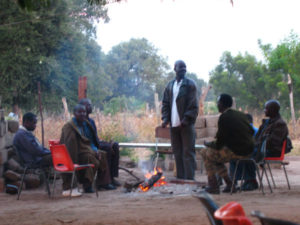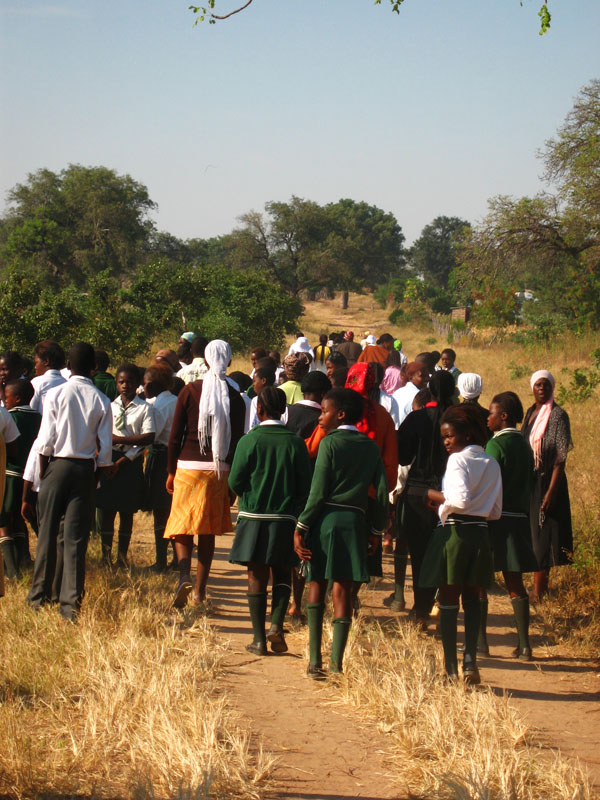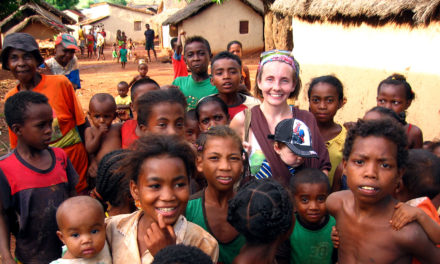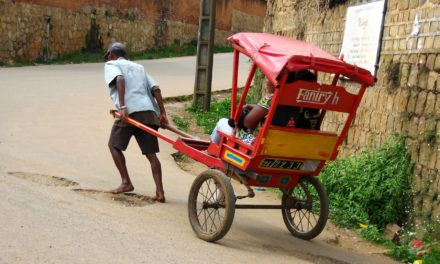Every school here has a file folder labeled “Death Report.” At one of our schools it’s on the shelf right next to the “Leave Register”, the file for keeping track of teachers’ absences. At the other school, I’ve only ever seen it on the principal’s desk, ready to be used
The principal’s desk is probably a good place for it: available for easy access. Deaths here happen often enough that there’s not much good reason to put the folder back on the shelf. Right when we first arrived, one of the school’s general workers had died and it was the first funeral we attended in our village.
Not long after, a grade R (Kindergarten) student died along with her cousin when a wall they were playing near collapsed on them. A few months ago, the second grade teacher at one of our schools died from some type of abdominal illness. A few weeks ago, a grade 3 student died from a persistent sickness. And it’s a small school in a small village.
Almost every Saturday there’s a funeral in our village. Sometimes it’s older people who’ve lived their lives, but just as often it’s young men and women or even children. In less than a year we’ve already been to several times more funerals here than the combined number of all the funerals either of us have been to in our entire lives in America. Almost every week, at least one of our teachers has a few days off for bereavement leave for the funeral preparations of a family member.
Some people say that AIDS and AIDS-related illnesses are one of the leading causes of death around here. That may be true. As an entire country, 20% of South Africans have HIV or AIDS. That would be one out of every five people that you know. It’s hard to comprehend and I personally rarely think about it. That is, except at funerals for a recently deceased “sick” person. Usually the most you hear about the cause of someone’s death is that “they were sick for a while”. Maybe that’s why when I was sick and missed school earlier this week all the teachers became very concerned and offered to come by and visit. You never hear what someone’s sickness was though, and I’ve never heard anyone ask. Sometimes, as in the case of our teacher that died, you hear that they were “sick in the stomach” for a vague period of time, but that’s the most amount of details we’ve heard about anyone’s death.
Anyway, at funerals, they always just keep it simple, “He/she was sick.” No one ever talks directly about AIDS, though sometimes people speculate generally about how many people around them probably have it. Our province has a slightly higher rate than the national average: 30% is what they’ve recorded.
But sometimes people die violently, especially involving cars and trucks. Road safety is rarely considered here and I don’t know that I’ve ever seen a South African wear a seatbelt. They certainly should though, with the reckless way nearly everyone drives and the fact that most roads, paved or not, are full of potholes and blind corners. And full of pedestrians.
People like to walk slowly in the middle of the road here, whether the road is busy or not. Most of the time the pedestrians jump out of traffic’s way, but all too often reckless drivers hit them, sometimes killing entire families or groups of friends as they walk along the road. One of our school’s teachers was driving her truck and accidentally killed a lady walking along the side of the road with her child.
A common form of transport is to fit 15 to 20 people standing in the back of a standard-sized pick-up truck (called “bakkies” here). One time last December, two such bakkies collided head-on in a misty mountain pass near a local town. Twenty to thirty people were killed.
But people die in violent crimes too, too often. Some people say that South Africa has the highest crime rate in the world. It rarely affects our village life, but it does come close. Some high-ranking police officers in the nearest district died recently in some kind of shoot-out with each other. It’s often that you hear of a jealous lover killing their significant other and all their children too.
A few months ago there was a police officer pursuing a young suspected thief in a classroom in one of the high schools in our district. The officer had his gun out and told all the children to stay low to the ground. The unarmed “thief” jumped out a window and another nearby student sat up to look just as the policeman fired his gun, accidentally shooting the innocent kid in the head, killing him instantly as his classmates watched.
There’s no shortage of tragedy here. We used to be surprised each time we heard another shocking story like this. It’s still unsettling, but we can hardly still be surprised, week after week as we hear more “death reports”.
I suppose what’s most surprising is the way people here handle it. Any of us would think they’d be persistently sad or mournful, depressed, and crying often, maybe some even hysterical. But I’ve never seen someone like that. People were silent for a short time when the news of our teacher’s death spread throughout the school. But less than fifteen minutes later, they were calmly planning their part in the memorial service and funeral arrangements, as if it were a regular school function. (And I guess in some ways, it was.)
When the students died, the school staff only briefly met and even added on a few separate points to the meeting. School wasn’t even ended early that day (though it’s very frequently ended early for any number of other reasons).
Rather than depression, there actually seems to be a little bit of excitement leading up to a funeral. Everyone’s going to be there; it’ll be cause for a big gathering of those still living. And I guess for people here, that’s enough.People here definitely have a different response to death. It seems they have a different view of it as well. Outside of a few speeches at the funeral, I never really hear people talking of the recently deceased person, the way they would in the States. But I hear a lot of talking about the food that was served, about the family members or friends there whom they haven’t seen in a while; I hear jovial greetings and not a little bit of laughter.
They speak about it that way too. There’s two main types of social gatherings we’ve attended here: funerals are by far the most common, and occasionally there are weddings. But one time a man invited us to his 42nd birthday party. The proceedings were more or less the same as a funeral or a wedding (it seems they only have one standard outline of events for any social gathering, and apparently that even includes birthdays), but it was on a smaller scale and had only a bit more laughter and merriment included.
At one point, the man who’s birthday it was made an interesting statement. He said, “We should come together more often for happy reasons. Maybe God sees us living separately and thinks of how he can cause us to come together and so he has to kill someone so that we’ll gather for a funeral. We should meet more often for happy reasons so we can have less funerals.”
However a person looks at the issue, it seems to be very nonchalantly. One of our school’s teachers was encouraging me one day to know where each of our teachers lived (only one of them now lives in our village, the rest are in town or in other villages a ways away). I wasn’t exactly sure why he thought I should know where they all lived until he said, “you never know, any time we could die.” He wanted to be sure I knew where each teacher lived so that I wouldn’t get lost on the day of their funeral. But there wasn’t anything sad in the way he said it. It was just a matter of fact.
And that’s what death is to the South Africans we live among. It’s a matter of fact, a regular part of life. None of the third-grade student’s schoolmates seemed particularly sad that she died. But they enjoyed a good time while singing a song together for her funeral. They had already picked up their culture’s values: life is for the living, so what is death? It’s not worth spending too much thought on apparently; rather enjoy the company of those around you.
As I mentioned earlier, Lora and I have had a bit of a hard time coming to terms with this idea, and with death so rampant around us. But in some of the time I’ve spent thinking about it, I can’t help but think maybe the Shangaan people have a healthier perspective on it than we do, than most people in the US.
Death is final, and it’s unavoidable. None of us can escape it. And we can rarely lengthen our own lives by endlessly contemplating the deceased. Do we really believe we owe them a certain span of time spent in misery because of their departure? Or is our time and theirs better spent fully enjoying the company of those we’re still with?
I don’t know. Those are all tough questions and tough thoughts, ones I’ve had far more frequently since being here. I’m sure that the South Africans we live among would be nearly unable to live at all if they responded to death the way we as Americans do.
And I’m sure there’s nothing wrong with anyone being sad at the absence of someone they deeply loved. I have seen a few South Africans cry at funerals. They’ve been whisked off by other family members to mourn alone, and I’ve only seen it twice, but even they can be made sad by the loss of someone else. I think there’s quite a bit that’s natural about that and quite a bit that some people here must be feeling sometimes that they simply keep under the surface.
But thank God the question of death isn’t the end. We as Christians have less reason to be startled than any South African, no matter how frequently any of us experiences death nearby. Whether we choose to visibly mourn someone’s absence or not to mourn at all, we know it’s not the end. As Psalms 30:5 says, “Weeping may linger for the night, but joy comes with the morning.” Neither this world, a loved one’s death, nor even our own is the end of things. That’s just the nightfall. But the dawn is still coming.

